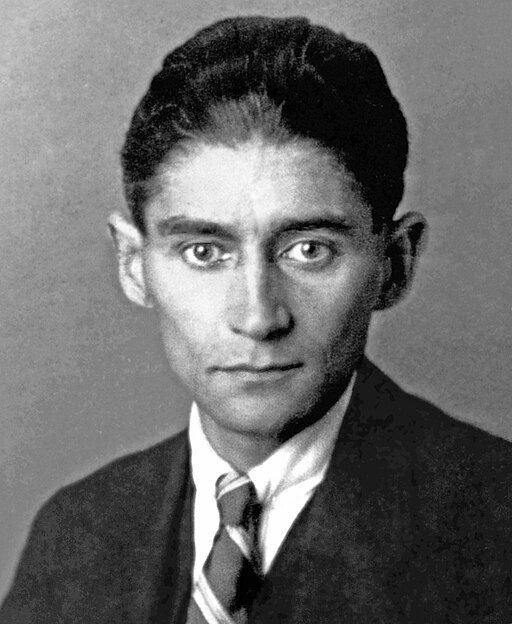by Elisa Garfagna
Imagining Franz Kafka in our time is a useful exercise that pushes us to reflect on the anxieties and absurdities of contemporary life through his lens of unease and melancholy. If Kafka were among us today, he would likely continue to express the complexities and contradictions that permeate our reality.
One of Kafka’s main themes is alienation: the protagonist of his hypothetical modern tale could be a European Jew awakening in a world where ethnic and religious tensions erupt unexpectedly at every corner. This character feels estranged not only from the social context surrounding him but, more profoundly, from his own identity, constantly challenged and put to the test. Nevertheless, he struggles against the stereotypes and archetypes of anti-Jewish thought in an endless battle.
In this story, akin to Gregor Samsa from “The Metamorphosis,” the protagonist does not undergo a physical transformation but is overwhelmed by a change in his environment. Kafka, with his ability to write about reality in a dreamlike manner, might provide a critical perspective on the fears and hopes of our time. His magnetic symbolism could suggest that, despite the tense period, there remains a possibility to rediscover the humanity that unites us. Through a dream experienced by the protagonist, Kafka could depict a different world, dystopian in comparison to the violent present.
The shadows of today loom over public figures like Bibi Netanyahu, whose charges seem to reflect Kafkaesque dynamics of an unfair and surreal trial. The accusations, devoid of concrete evidence, materialize as a dark and elusive shadow that creeps into the corridors of power and then into the very cities of Europe. Truth is shrouded in a veil of ambiguity, and the leader finds himself facing an international tribunal, an arena that hauntingly resembles the Dreyfus affair, where the verdict is already written, but the evidence remains a mirage.
This situation becomes a symbol of isolation, a metaphorical prison keeping Israel distant from the rest of the world, locked in its shell. Like a Kafkaesque protagonist, Netanyahu navigates a labyrinth of accusations and trials, attempting to prove his innocence in a context where the rules of the game seem to change constantly and where each judge possesses four or five decks of cards. His figure stands out as that of a man who, despite his power, is ensnared in a web of political and judicial intrigues that dehumanize him.
Kafka might describe this scenario as a haunting dream, where the hero is forced to confront the ghosts of the past and the fears of the future. The accusations against him transform into a process of estrangement, where his identity and role are questioned not only by political opponents but also by a public opinion that feeds on distorted and unsettling narratives.
In this tale, the figure of this man becomes a symbol of the fragility of truth and justice, trapped in a power game that transcends the boundaries of the Middle East. His struggle against the system, akin to that of Gregor Samsa, serves as a reflection on the human condition, on the inevitability of being judged in a world that often chooses to ignore the complexity of situations and factual truths.
Kafka’s vision could serve as a call to the collective conscience, a moral imperative that we can no longer ignore: to transform anguish into action and unease into hope. And who knows, perhaps out there right now, a young Kafka is already writing his first chapter, narrating the stories of a present that, like an echo of Kafka, continues to resonate in the void of our fears and dreams.

